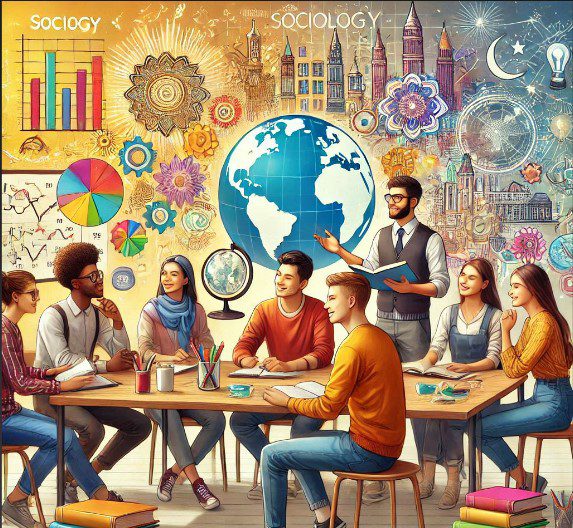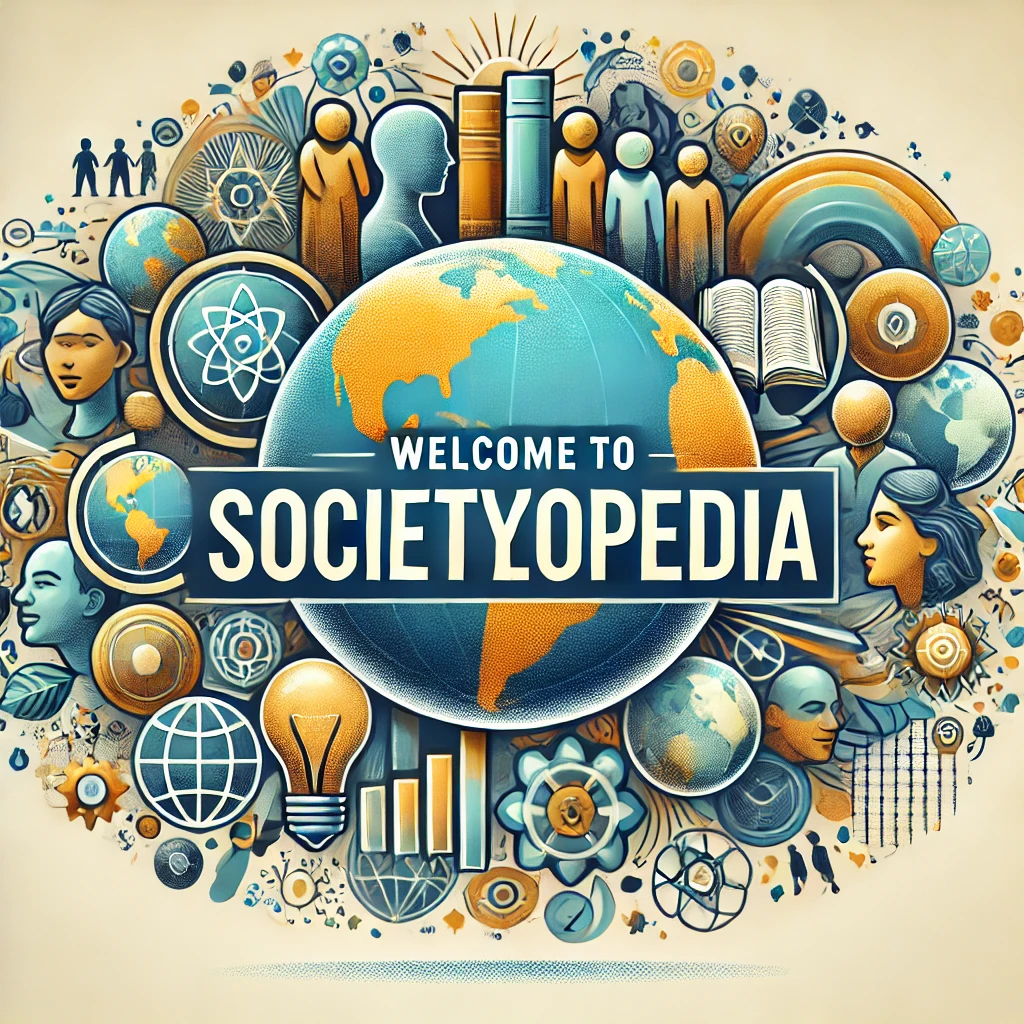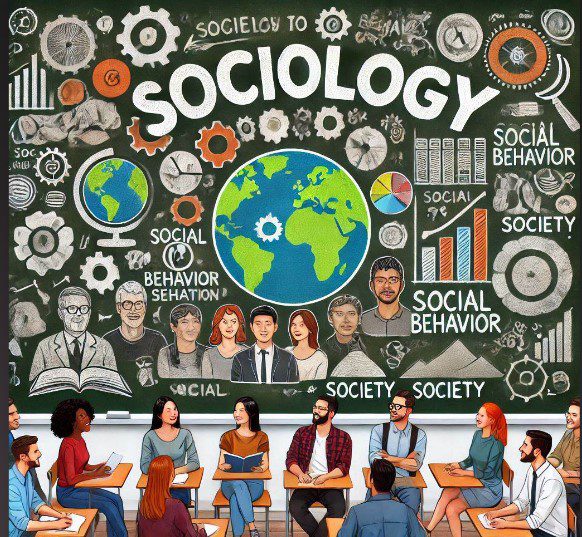Sociology, the scientific study of human society and social behavior, plays an essential role in understanding the complexities of modern life. As societies evolve and face new challenges, sociology provides critical insights into the functioning of social structures, institutions, and relationships. By studying societal trends and issues, sociology equips individuals and policymakers with the knowledge needed to address pressing challenges and promote harmony and progress. This article explores the multifaceted importance of sociology in contemporary society.
1. Understanding Social Structures and Institutions
Modern societies are characterized by complex social structures and institutions, including family, education, religion, politics, and the economy. Sociology offers a systematic approach to studying how these institutions operate, interact, and influence individuals and groups. For instance:
- Family: Sociology examines changing family dynamics, such as shifts in marriage patterns, gender roles, and parenting styles, helping societies adapt to these changes.
- Education: By studying educational systems, sociologists highlight disparities in access and outcomes, providing insights to promote equity and inclusivity.
- Government and Economy: Sociology analyzes power dynamics, policy-making processes, and economic inequality, fostering a deeper understanding of governance and social justice.
Best Definitions of of Sociology
2. Promoting Social Awareness
Sociology raises awareness of societal challenges, such as inequality, discrimination, and poverty. By shedding light on the root causes of these issues, sociology fosters empathy and critical thinking, inspiring individuals and organizations to advocate for social change. Key areas include:
- Gender Equality: Sociological studies have been pivotal in highlighting the systemic nature of gender-based violence and workplace discrimination, driving movements for equality.
- Racial Justice: Sociology explores the historical and structural dimensions of racism, empowering communities to challenge prejudices and build inclusive societies.
- Poverty and Inequality: Sociologists analyze economic disparities, identifying strategies to reduce poverty and promote upward mobility.
3. Guiding Social Policy and Reform
Sociological research plays a crucial role in shaping social policies that address contemporary issues. By providing data-driven insights, sociologists help policymakers design effective interventions to:
- Reduce unemployment and improve working conditions.
- Address healthcare disparities and enhance public health systems.
- Develop urban planning strategies that tackle housing shortages and environmental concerns.
For example, sociologists studying urbanization trends have informed policies to manage overcrowding, reduce pollution, and create sustainable cities.
4. Navigating Globalization
The modern era is defined by globalization, which has transformed cultures, economies, and identities. Sociology examines the impact of globalization on:
- Cultural Exchange: Sociologists explore how cultural interactions foster innovation and diversity while also addressing the challenges of cultural homogenization.
- Economic Integration: By studying global trade and migration patterns, sociology provides insights into economic inequalities and their social repercussions.
- Identity and Belonging: Sociology investigates how globalization shapes individual and collective identities, helping societies navigate cultural conflicts and preserve heritage.
5. Addressing Contemporary Social Problems
Modern societies face numerous challenges, ranging from technological disruptions to environmental crises. Sociology provides tools to understand and address these issues effectively:
- Climate Change: Sociologists study the social dimensions of environmental challenges, such as the unequal impact of climate change on vulnerable populations.
- Digital Transformations: Sociology examines the effects of social media, artificial intelligence, and digital surveillance on privacy, relationships, and democracy.
- Mental Health: By exploring the stigma surrounding mental health, sociology advocates for inclusive healthcare systems and supportive communities.
6. Encouraging Critical Thinking
Sociology challenges individuals to question societal norms, stereotypes, and power dynamics. By fostering critical thinking, sociology empowers people to:
- Recognize and dismantle biases.
- Advocate for social justice and equity.
- Make informed decisions about personal and societal issues.
For instance, sociological studies on consumer behavior help individuals understand the influence of marketing and societal expectations on their choices.
7. Fostering Community Development
Sociologists play an active role in community development by working with local groups to identify needs and strengths. This collaborative approach helps communities:
- Design and implement programs for education, healthcare, and economic growth.
- Address social problems like crime and substance abuse.
- Build social cohesion and resilience in the face of challenges.
8. Preparing for Future Challenges
In an era of rapid change, sociology helps societies anticipate and adapt to emerging trends and challenges. Examples include:
- Demographic Shifts: Sociologists study aging populations, urbanization, and migration, offering strategies to address their impacts on healthcare, housing, and labor markets.
- Technological Advancements: By analyzing the social implications of automation and artificial intelligence, sociology prepares societies for the future of work.
- Pandemics and Public Health: Sociology examines the social factors influencing health outcomes, guiding responses to global health crises.
9. Bridging Theory and Practice
Sociology balances theoretical exploration with practical application. Sociological theories, such as functionalism, conflict theory, and symbolic interactionism, provide frameworks for understanding social phenomena. These insights are applied to real-world issues, ensuring that sociology remains both intellectually rigorous and socially relevant.
Conclusion
Sociology is an indispensable discipline in modern society. By exploring the complexities of human behavior and social structures, it provides tools to address societal challenges and foster progress. Whether through shaping policies, raising awareness, or promoting critical thinking, sociology contributes to building more equitable, inclusive, and sustainable communities. Its relevance will only grow as societies continue to evolve, making it a cornerstone of understanding and improving the human condition.
Societyopedia is a platform that focuses on sharing knowledge and insights about social sciences, with the goal of promoting understanding and awareness about societal dynamics.


